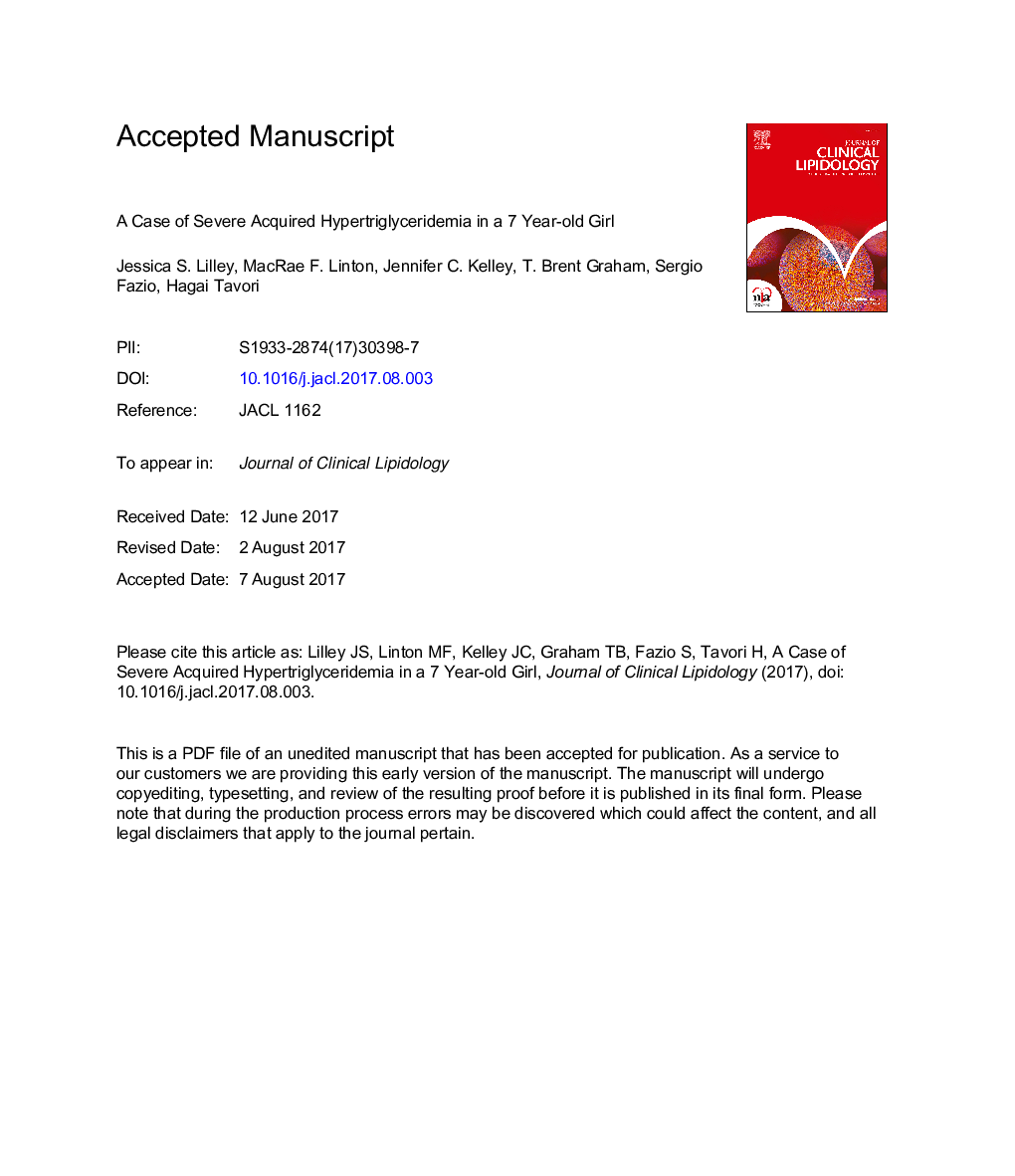| Article ID | Journal | Published Year | Pages | File Type |
|---|---|---|---|---|
| 8668549 | Journal of Clinical Lipidology | 2017 | 16 Pages |
Abstract
We report a case of severe type I hyperlipoproteinemia caused by autoimmunity against lipoprotein lipase (LPL) in the context of presymptomatic Sjögren's syndrome. A 7-year-old mixed race (Caucasian/African American) girl was admitted to the intensive care unit at Vanderbilt Children's Hospital with acute pancreatitis and shock. She was previously healthy aside from asthma and history of Hashimoto's thyroiditis. Admission triglycerides (TGs) were 2191Â mg/dL but returned to normal during the hospital stay and in the absence of food intake. At discharge, she was placed on a low-fat, low-sugar diet. She did not respond to fibrates, prescription fish oil, metformin, or orlistat, and during the following 2Â years, she was hospitalized several times with recurrent pancreatitis. Except for a heterozygous mutation in the promoter region of LPL, predicted to have no clinical significance, she had no further mutations in genes known to affect TG metabolism and to cause inherited type I hyperlipoproteinemia, such as APOA5, APOC2, GPIHBP1, or LMF1. When her TG levels normalized after incidental use of prednisone, an autoimmune mechanism was suspected. Immunoblot analyses showed the presence of autoantibodies to LPL in the patient's plasma. Autoantibodies to LPL decreased by 37% while patient was on prednisone, and by 68% as she subsequently transitioned to hydroxychloroquine monotherapy. While on hydroxychloroquine, she underwent a supervised high-fat meal challenge and showed normal ability to metabolize TG. For the past 3Â years and 6 months, she has had TG consistently <250Â mg/dL, and no symptoms of, or readmissions for, pancreatitis.
Keywords
Related Topics
Health Sciences
Medicine and Dentistry
Cardiology and Cardiovascular Medicine
Authors
Jessica S. MD, MacRae F. MD, Jennifer C. MD, T. Brent MD, Sergio MD, PhD, Hagai PhD,
